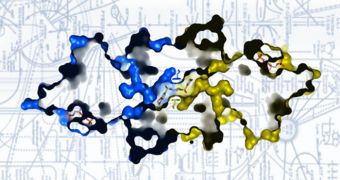Matthew Vander Heiden, a researcher at the Cambridge-based Massachusetts Institute of Technology (MIT), announces the discovery of a new potential target for anti-cancer drugs. He says that attacking a certain metabolic pathway could reduce tumor growth patterns.
Vander Heiden, the senior author of the research paper detailing this finding, holds an appointment as the Howard S. and Linda B. Stern career development assistant professor of biology at the Institute, and is also a member of the David H. Koch Institute for Integrative Cancer Research at MIT.
He explains that cancerous cells spend the vast majority of their resources multiplying, which accounts for their rapid growth. In order to be able to sustain such a fast pace, the diseased cells need to activate alternative metabolic pathways.
The latter are capable of producing cellular building blocks, which can then be assembled into new cancer cells. Some of these blocks include carbohydrates, lipids and deoxyribonucleic acid (DNA).
By using a series of chemical compounds that target these pathways, it is possible to stop tumors from developing. The conclusion belongs to a series of experiments the MIT team conducted on lab mice. Details of the study appear in the August 26 online issue of the top journal Nature Chemical Biology.
The research group also included scientists from the National Center for Advancing Translational Sciences, Harvard Medical School, the University of Toronto and Agios Pharmaceuticals.
Cancer cells focus their energy on building new cells by using a special form of the enzyme pyruvate kinase. Reversing the molecule's properties would essentially force tumors to search for other enzymes to assist in their multiplication.
“It’s fair to say that perhaps activating pyruvate kinase could have some role in pushing tumors away from a program that allows them to efficiently grow. Whether or not it would really be a viable drug in people is an open question,” Vander Heiden explains.
“Normal cells don’t need to build things, they just need to keep the lights on. They just burn energy to keep things running, whereas cancer cells have to do that as well as build new cells,” he adds.
By targeting pyruvate kinase activity, researchers could essentially force the diseased cells to resume their normal metabolic patterns, depriving tumors of much-needed fuel. The approach would not treat cancer, but it would prevent it from spreading any further, after detection.

 14 DAY TRIAL //
14 DAY TRIAL //